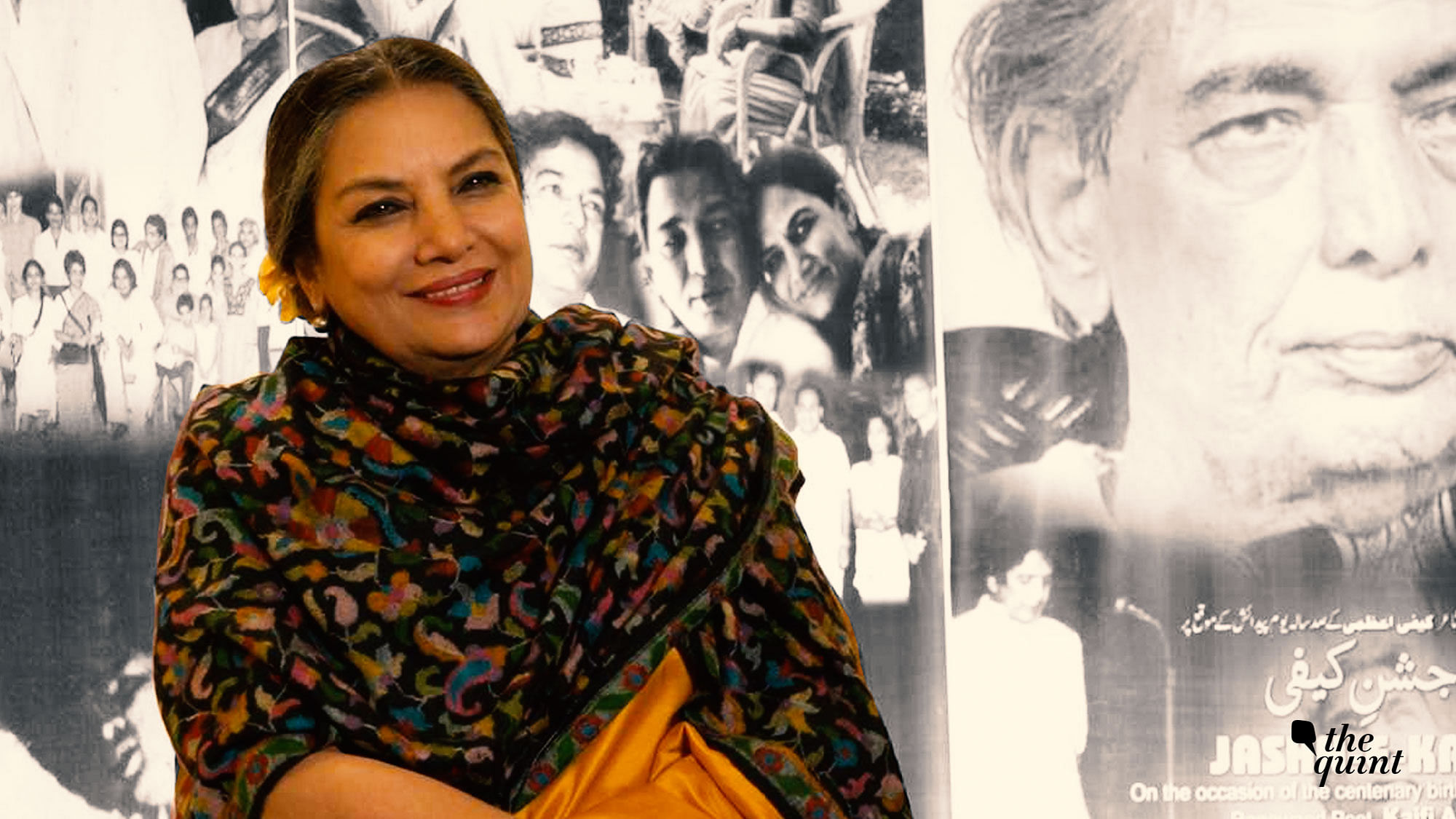Kaifi Was a Leader Who Spoke to the Masses: Shabana Azmi
As a lyricist, Kaifi penned songs like ‘Chalte Chalte’ (Pakeezah), ‘Tum Itna Jo Muskura Rahi Ho’ (Arth), and others.

Video Editor: Mohd Irshad Alam
Camerapersons: Shivkumar Maurya and Abhishek Ranjan
As 14 January marks the centenary of writer and poet Kaifi Azmi, The Quint spoke to actor and Kaifi’s daughter Shabana Azmi who said she remembers him more as a progressive writer than a father.
Whoever has read Kaifi and known him through his incisive political responses, will find themselves in a desperate need to remind the world of his poetry. We did that as well.
To remember the progressive writer, we collected some vignettes from the poet’s treasure trove.
As a lyricist, Kaifi penned songs like ‘Chalte Chalte’ (Pakeezah), ‘Tum Itna Jo Muskura Rahi Ho’ (Arth), and many others. And he also had a response to every political situation as well. In 1992, he wrote a poem called ‘Doosra Banwaas’ (Second Exile) as a response to the aftermath of the Babri Masjid demolition.
In his poem ‘Aurat’, Kaifi hopes that women need not walk behind their so-called male guardians but march alongside. Women must challenge conventions and prejudices that strangle them.
Kaifi’s poems are a reflection of his worldview that emerged from the need of a social change in post-partition India. Referring to the above poems, his daughter Shabana Azmi suggested that people are meant to react to a work of art. It’s absolutely fine for an artiste to make art for art’s sake.
Shabana Azmi and her husband Javed Akhtar will be part of events and seminars on Kaifi Azmi throughout the year. A special programme called ‘Raag Shayari’ will be held across various cities in which music composer Shankar Mahadevan will sing Kaifi Azmi’s poems, Ustad Zakir Hussain will create magic on the tabla, Javed Akhtar will read the poems in Hindustani and Shabana Azmi will recite them in English translation.
This initiative is a step towards carrying Kaifi’s legacy forward by making his poetry accessible to those who don’t understand Urdu.
(This article is from The Quint’s archives. It is now being republished to mark Shabana Azmi’s birthday.)
(At The Quint, we are answerable only to our audience. Play an active role in shaping our journalism by becoming a member. Because the truth is worth it.)